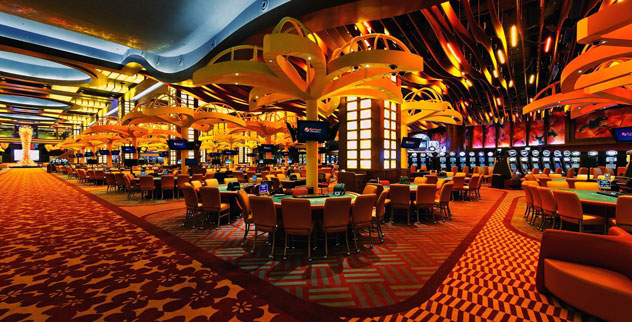
Casino games have long captured the fascination of individuals around the globe, becoming an integral part of both leisure and tradition. From the glimmering lights of the Vegas Strip to the captivating experience of internet gambling, these activities evoke enthusiasm, uncertainty, and sometimes even a sense of sentimentality. They are beyond simply hobbies; they have woven themselves into the tapestry of society, influencing various aspects from movies and songs to style and writing.
The appeal of casino games transcends the wagering aspect, tapping into larger themes of fortune, possibility, and social interaction. As players gather around a card table or spin the wheel of fortune, they engage in an ancient ritual that resonates with our shared desire for adventure and instability. This captivation has led to the rise of countless references in movies, music, and electronic games, showcasing how strongly entrenched these games are in popular culture. Whether it is the intense drama of a legendary robbery film or the lively nightlife portrayed in music videos, casino games have created a substantial niche that reflects our bond with risk.
Social Impact of Gambling Games
Casino activities have played a key role in cultural aspects throughout history. Originating from old societies, games of chance were often linked to ceremonies or events. For instance, early iterations of gambling can be traced back to historic China and the Romans, where die games and wagering on outcomes were popular pastimes. These games not only functioned as leisure but also as methods of social interaction, facilitating relationships among individuals within societies.
As cultures evolved, so did the sophistication and structure of casino games. The establishment of formal casinos in the 17th century, particularly in the Italian region, marked a significant shift in how games were perceived and structured. With designated spaces for gambling, the casino became a social hub where people from various backgrounds gathered. This evolution contributed to the validation of the industry, transforming it from a mere pastime into an organized industry that shaped the economy and regulations.
The effect of casino games on mainstream culture cannot be understated. As they were brought into the limelight in books and film, games such as Texas Hold’em and blackjack became symbols of risk, chance, and strategy. Famous characters and stories have emerged around these activities, illustrating societal views towards luck, wealth, and immorality. This fascination with casino activities has permeated various forms of entertainment, solidifying their status in the public imagination and connecting them to wider cultural stories throughout history. Trực tiếp bóng đá
Portrayal of Casino Games in Media
Gambling games have long been a popular topic in various forms of media, reflecting both the fascination and complexities of gambling culture. Movies such as Ocean’s Eleven and Casino Royale portray individuals who navigate dangerous scenarios, showcasing not only the appeal of the gambling environment but also the strategies and decisions that come with playing popular games like poker and blackjack. Thap cam TV These films often dramatize the exhilaration of winning and the potential repercussions of losing, encapsulating the risks involved in gambling.
Television shows have also explored the realm of casino games, often integrating them into the plot as a setting for story progression and tension. Shows like Las Vegas depict the experiences of casino workers and casino-goers, highlighting the vibrant, often disorderly energy of the gaming floor. Reality shows featuring intense betting contests further emphasize the attraction of casino games, drawing viewers into the excitement and tactics involved in each game. Through these portrayals, media not only amuses but also stimulates conversations about fortune, expertise, and the essence of randomness.
Digital games have increasingly integrated casino games into their design, allowing players to experience the feeling of betting without financial risk. Titles within the landscape of digital gaming often include online slot machines, online poker, and other casino favorites, creating an interactive experience that mirrors actual casino experiences. These virtual portrayals make gambling activities accessible to a broad demographic, appealing to both risk-takers and those who enjoy the rush of virtual experiences. As a outcome, the portrayal of gambling activities in media continues to shape cultural attitudes and cultural significance, highlighting their function in society and the cultural landscape.
Effect of Casino Games on Society
Gambling activities have a significant impact on communities, affecting various aspects of societal norms and interpersonal behavior. They often function as a platform for community engagement, where people come together to enjoy a shared experience. Casino trips with friends or trips to casinos become social activities that foster connections and create memories. This communal aspect enhances the fun value of casino games, making them a popular choice for celebrations and recreational pursuits.
Additionally, casino games have been depicted in numerous films, TV series, and literature, shaping views and attitudes towards gaming and betting. Icons like James Bond playing baccarat or the intense poker scenes in films have cemented these games in the shared imagination. This depiction often glamorizes the lifestyle associated with casino activities, drawing in new players and impacting trends in both fashion and conduct. These portrayals can spark curiosity and lead to a more profound investigation of the intricacies of gaming.
Nonetheless, there are also adverse consequences associated with the popularity of gambling activities. The temptation of quick monetary gain can lead to gambling addiction and economic troubles for some individuals. Society must contend with these issues, promoting responsible gaming and awareness of the dangers involved. Balancing the fun aspect of casino games with the potential for harm is vital to ensure that they remain a beneficial aspect of our societal fabric.